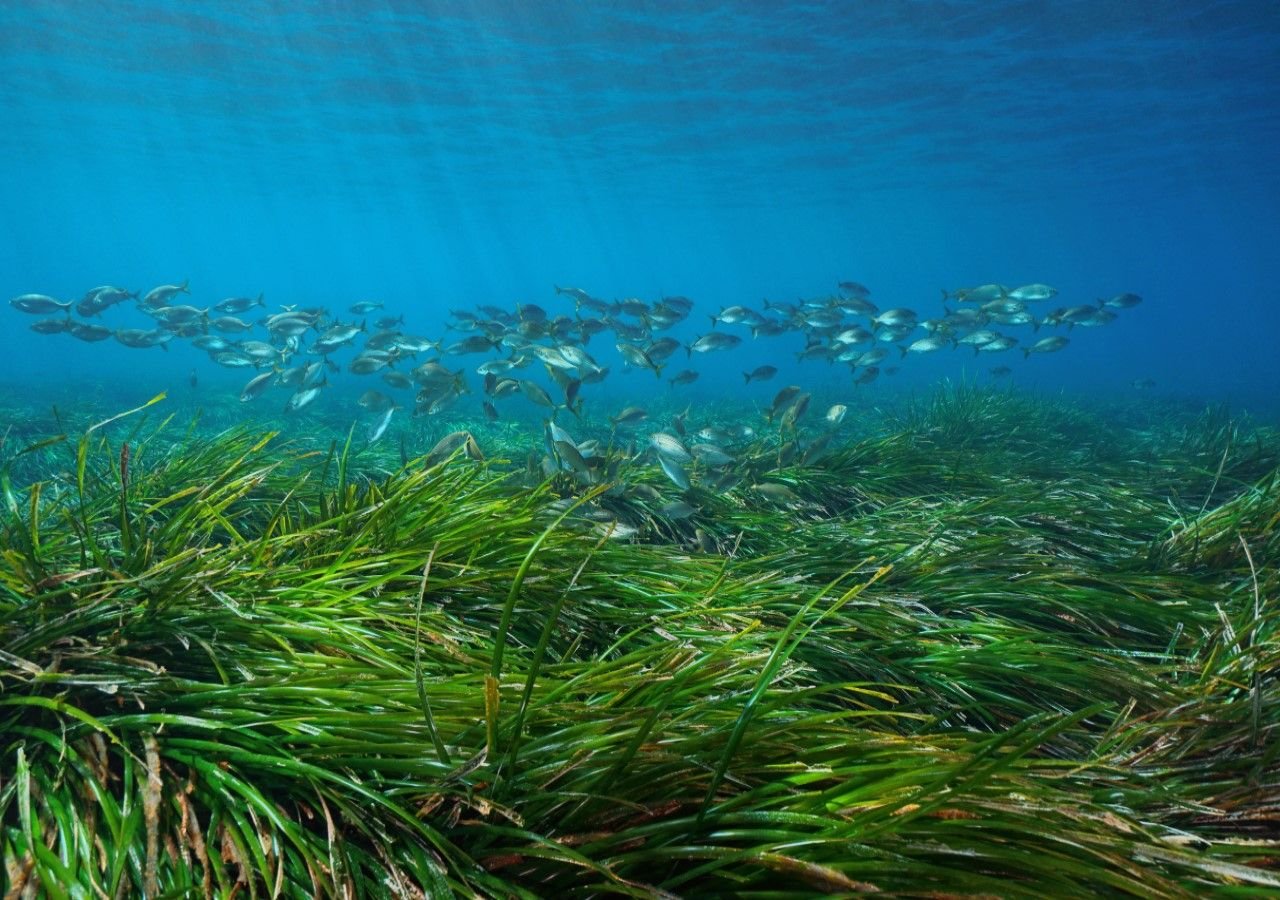
Seagrass Meadows
Seagrass meadows are essential ecosystems that significantly contribute to carbon sequestration. These habitats play a critical role in capturing and storing substantial quantities of carbon dioxide from the atmosphere. Utilizing photosynthesis, seagrasses absorb carbon dioxide, transforming it into oxygen. This process not only helps combat climate change but also offers a crucial habitat for diverse marine species. Thus, the restoration of seagrass meadows emerges as a pivotal strategy to elevate oxygen levels in our oceans while addressing climate challenges.

Coral Reefs
Coral reefs are vital marine ecosystems that support a wide range of marine life. However, coral reefs worldwide are facing significant threats due to climate change, pollution, overfishing, and destructive fishing practices. As a result, many coral reefs are deteriorating at an alarming rate.
Restoration and conservation efforts are crucial to help protect and preserve these valuable ecosystems. Through restoration initiatives such as coral transplantation, artificial reef structures, and the reduction of local stressors, we can help coral reefs recover and thrive.
Conservation measures such as marine protected areas, sustainable fishing practices, and reducing carbon emissions are also essential in ensuring the long-term health and resilience of coral reefs. By working together to implement these strategies, we can make a positive impact on coral reef ecosystems and safeguard them for future generations.

Artificial Reefs
Artificial reefs play a crucial role in marine conservation efforts by providing habitats for marine life and restoring damaged ecosystems. These man-made structures, such as sunken ships or concrete modules, mimic natural reefs and attract a diverse array of species. Restoring and creating artificial reefs help to increase biodiversity, support fisheries, and protect coastlines from erosion by dissipating wave energy. Marine conservancy groups often collaborate with government agencies, research institutions, and local communities to design, deploy, and monitor artificial reef projects to enhance marine ecosystems' health and resilience.

